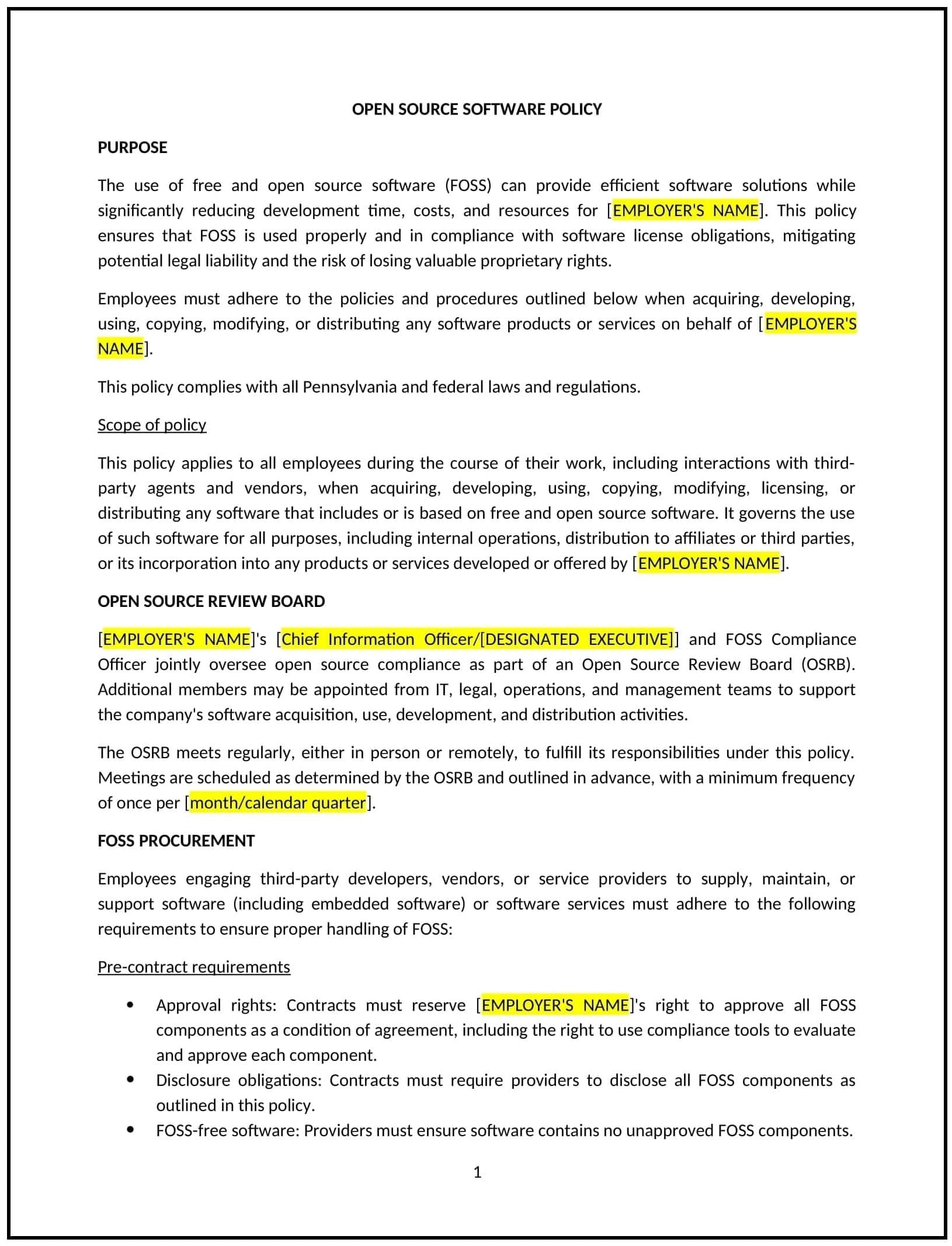Open source software policy (Pennsylvania): Free template
Got contracts to review? While you're here for policies, let Cobrief make contract review effortless—start your free review now.

Customize this template for free
Open source software policy (Pennsylvania)
This open source software (OSS) policy is designed to help businesses in Pennsylvania establish clear guidelines for the use, modification, and distribution of open source software within their operations. By addressing compliance, security, and intellectual property concerns, this template ensures that businesses can safely leverage the benefits of OSS while adhering to applicable regulations and best practices.
By using this template, businesses can mitigate risks, promote responsible use of OSS, and align with industry standards and Pennsylvania-specific business needs.
How to use this open source software policy (Pennsylvania)
- Define OSS usage: Clearly specify acceptable uses of open source software, such as for development, testing, or production environments.
- Address licensing compliance: Include guidelines for identifying and complying with open source software licenses, such as GPL, MIT, or Apache licenses.
- Include approval processes: Establish procedures for evaluating and approving OSS before use, modification, or integration into business operations.
- Provide security measures: Detail steps to ensure OSS is secure, including regular updates, vulnerability scans, and code reviews.
- Reflect Pennsylvania-specific considerations: Tailor the policy to align with local industry needs, such as technology, education, or healthcare sectors that frequently rely on OSS.
Benefits of using an open source software policy (Pennsylvania)
A well-structured OSS policy supports innovation and compliance. Here's how it helps:
- Reduces risks: Ensures compliance with OSS licenses, minimizing legal and financial exposure.
- Enhances security: Provides guidelines to prevent vulnerabilities and protect business systems.
- Encourages innovation: Supports the use of OSS to drive efficiency and cost savings in business operations.
- Clarifies expectations: Establishes clear rules for employees and developers when using or modifying OSS.
- Reflects local needs: Addresses Pennsylvania’s unique industries and their reliance on OSS, such as manufacturing or tech startups.
Tips for using an open source software policy (Pennsylvania)
- Communicate the policy: Share the policy with employees, developers, and IT teams to ensure understanding of OSS guidelines and requirements.
- Maintain a repository: Keep a centralized record of approved OSS to ensure consistency and compliance across the organization.
- Conduct regular audits: Review OSS usage periodically to ensure compliance with licensing and security requirements.
- Provide training: Offer training sessions to educate employees and developers on OSS licenses and best practices.
- Review periodically: Update the policy to reflect changes in OSS licensing terms, Pennsylvania industry trends, or organizational needs.